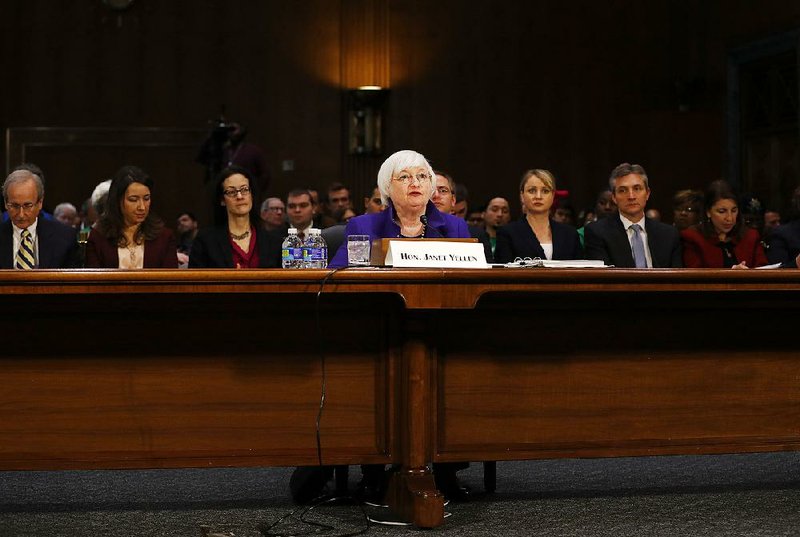WASHINGTON -- Congress should focus on policies aimed at improving the productivity of the U.S. economy rather than increasing short-term growth, Federal Reserve Chairman Janet Yellen told the Senate Banking Committee Tuesday.
Yellen also said the Fed remained pleased with the performance of the economy and expected to continue increasing its benchmark interest rate.
Job growth remains strong, and inflation is rising toward a healthier level, Yellen said.
"At our upcoming meetings, the committee will evaluate whether employment and inflation are continuing to evolve in line with these expectations, in which case a further adjustment of the federal funds rate would likely be appropriate," Yellen said, referring to the Federal Open Market Committee.
Yellen's semiannual report on monetary policy is her first since Donald Trump became president by vowing to speed U.S. economic growth, which could push the open market committee to pick up the pace of rate increases if such steps fan higher inflation. She reiterated that falling behind on inflation could harm the economy and possibly cut short the expansion.
The new chairman of the banking committee, Sen. Michael Crapo, R-Idaho, said he hoped the Fed would cooperate with the Trump administration in its efforts to reduce financial regulation.
Trump and congressional Republicans want to roll back some of the rules imposed on U.S. banks in the aftermath of the financial crisis.
"It is time to reassess what is working and what is not," Crapo said. "Financial regulation should strike a proper balance between the need for a safe and sound financial system and the need to promote a vibrant, growing economy."
Yellen said the Fed has been trying to reduce the regulatory burden on community banks and is open to doing more.
Yellen also wants Congress to consider easing some of the requirements imposed on small banks by the Dodd-Frank financial overhaul law.
"It is important to look for every way we can to mitigate the regulatory burden" on smaller institutions, Yellen said.
In her testimony, Yellen emphasized the health of the economy.
The unemployment rate was little changed over the past year, standing at 4.8 percent in January, even as the economy added an average of 190,000 jobs a month during the second half of 2016 and an additional 227,000 jobs in the first month of 2017.
Inflation also showed signs of rising to a healthier level. Prices increased by 1.6 percent during 2016, a full percentage point more than in the previous year, although that is still below the Fed's preferred 2 percent annual pace.
Fed officials predicted in December that the central bank would raise its benchmark rate three times during 2017, lifting the rate from its current range between 0.5 percent and 0.75 percent to a range of 1.25 percent to 1.5 percent.
Many economists caution that the pace of rate increases could change quickly depending on how much success Trump has in getting his economic initiatives enacted.
Trump has said his goal is to double economic growth, as measured by the gross domestic product, from the lackluster 2 percent annual rate that's prevailed since the recession ended in 2009 to a robust 4 percent rate or better. Comments he made late last week reiterating his commitment to major tax relief helped drive up stock indexes to fresh record highs.
Yellen is scheduled to testify today before the House Finances Services Committee.
Information for this article was contributed by Binyamin Appelbaum of The New York Times, Martin Crutsinger of The Associated Press and Craig Torres, Christopher Condon and Jeanna Smialek of Bloomberg News.
Business on 02/15/2017
